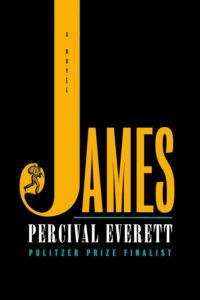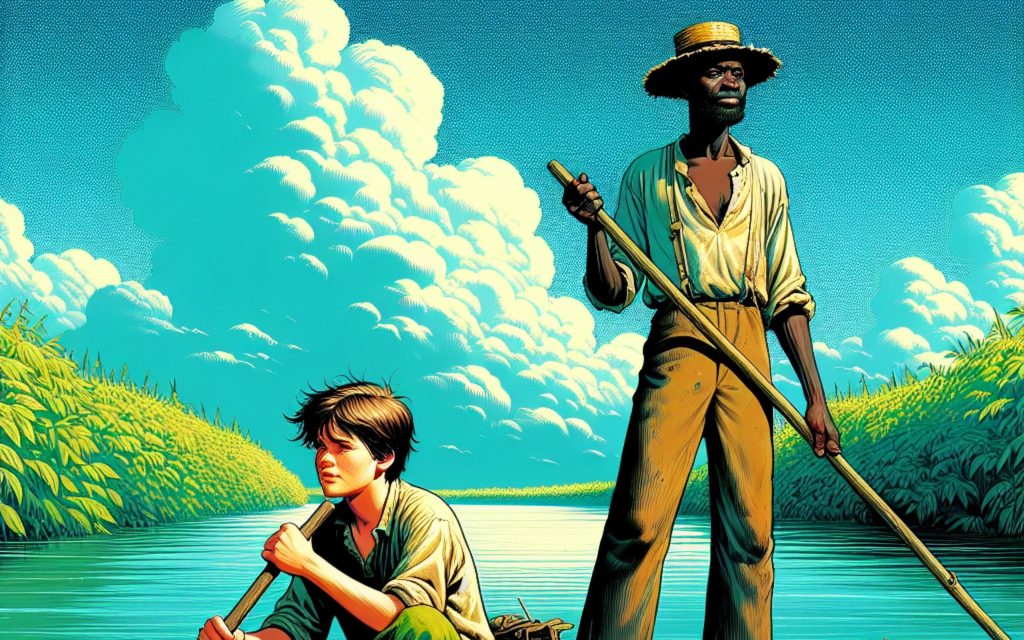In his new letter on the importance of reading fiction and poetry for the formation of priests, Pope Francis makes a bold argument: that reading not only expands the horizons of the mind, but is also good for the soul.
Francis, who taught literature in his younger days as a priest, quotes C. S. Lewis, who said that in immersive reading, “as in worship, in love, in moral action, and in knowing, I transcend myself; and am never more myself than when I do.”
The pope sees that personal transcendence in terms of evangelization and the understanding of other persons and other cultures. He quotes his fellow Argentinian, Jorge Luis Borges, as saying literature was “listening to another person’s voice.”
My latest reading experience certainly proves the pope’s point.
Acclaimed writer Percival Everett released a novel this year based on a character in Mark Twain’s “Huckleberry Finn.” That book, although controversial in some parts, was described by Ernest Hemingway as the “best book we’ve had. All American writing comes from that. There was nothing before. There has been nothing as good since.”
Many would beg to differ with such a sweeping judgment. After all, Nathanael Hawthorne and Herman Melville produced their classics before Twain published “Huckleberry Finn,” but it is true that the book is practically American myth. It is our homegrown “Don Quixote” — which it resembles in more ways than one — and has an iconic value that extends beyond those who have read the book.
Years later, T.S. Eliot would write about the poetry he found in “Huckleberry Finn,” and identified the two themes that explained Twain’s creativity: “the Boy and the River.”
Eliot said that Huck was Mark Twain himself, the careful, ironic and humorous observer of men and events. Jim, the runaway slave who shares the adventures of the outcast boy, was “the submissive sufferer from them; and they are equal in dignity.”
I don’t know if Everett had Eliot’s words in mind when he wrote his novel “James,” but his work brilliantly turns that perception of Jim, the slave, inside out. In Twain’s book, Jim is a noble soul who suffers from the cruelty of slavery and its enormous injustice as a kind of holy innocent, wise but also superstitious and vulnerable.
In Everett’s book, the slightly renamed “James” is a Voltairean atheist who disguises his intelligence for fear of white punishment, even speaking a dialect only in the presence of the “massas,” but capable of commenting on both proleptic and dramatic irony. Everett relies on these ironies to craft a novel that shadows some of Twain’s original plot but also fearlessly changes its direction in many respects.
Like Eliot, I had never read “Tom Sawyer” or “Huckleberry Finn” as a child. So, when I first read that “James” had been nominated for Britain’s prestigious Booker Prize, I decided to read the two originals before trying Everett. I found James a very creative sequel to Twain’s books.

Everett makes the slave Jim a clandestine intellectual, iconoclastic and even atheistic. It is Jim as Twain himself, who styled himself an atheist. Jim has secretly taught himself to read and write and speaks perfect grammar except when he talks to white people. He teaches his children how to speak “slave” to their masters. He has dreamlike encounters with Voltaire, whose “Candide” he read, and with John Locke the philosopher. The irony in the novel flows like the mighty Mississippi River, which is the constant backdrop to the two main characters as they fight for their survival in a world that conspires against justice and truth.
The book’s presentation of the white culture is heavy-going sometimes. “After being cruel, the most notable white attribute was gullibility,” Jim comments at one point. But at another, he says: “Bad as whites were, they had no monopoly on duplicity, dishonestly or perfidy,” something not readily apparent from the novel, except for the boy Huck, whom the author makes exceptional in another way I will not spoil for you.
I was also taken aback by James’s dismissal of Christianity in the book and his rejection of the Bible. Everett is obviously an unbeliever, like Twain himself, but some of his theological commentary reminded me of the Marcusian wannabe Marxist radicals of the ’60s. Ironically, while I was reading and disapproving of some of the ideas of the book, I came across an article about Archbishop Augustine Akubeze of Benin City in Nigeria, and his criticism of the presentation of “the white man’s God” that some missionaries had given to Christianity. Such portrayals underscore the modern need to be introduced to true Christianity, free of some cultural accretions that contradicted its message, like the justification of slavery by people who claimed to be Christians.
The ending of the original “Huckleberry Finn” has disappointed critics in the past. Tom Sawyer appears suddenly to insist on rescuing Jim from his captivity with tropes from the great escapes of adventure literature, especially inspired by Dumas’ “The Count of Monte Cristo.” Everett’s ending is not as tedious but is also problematic for me: We know that Huck has the money to buy Jim and his family freedom, but somehow that is completely overlooked and not regarded as a possibility.
Still, for me the experience of reading “James” was an example of what Francis means by the value of “imaginative fiction.” In my seminary library we had a painting on the ceiling that included an oval with the words Litteratura, Speculum Vitae (“Literature, Mirror of Life” in Latin). In his letter, Francis takes the visual metaphor a step further by quoting French writer Marcel Proust, who said literature is not a mirror but more like a telescope, making what is far away seem close by.
That is not a bad description of what Everett does in presenting a different view of the world that Twain had painted before him. “James’ ” subtlety in some sections is a marvel of creative writing (which reading Twain’s originals made me appreciate more). I will never think the same again about Twain’s achievement in “Huckleberry Finn” or about the dark reality of slavery that was its background.
T. S. Eliot said Twain never grew up and remained a boy his whole life. Because of the intensity of his writing, and its anger, I wonder if Everett was ever just a boy. Both writers stretch us and can make us grow. Which is always, as the Holy Father insists in his letter, a grace.

